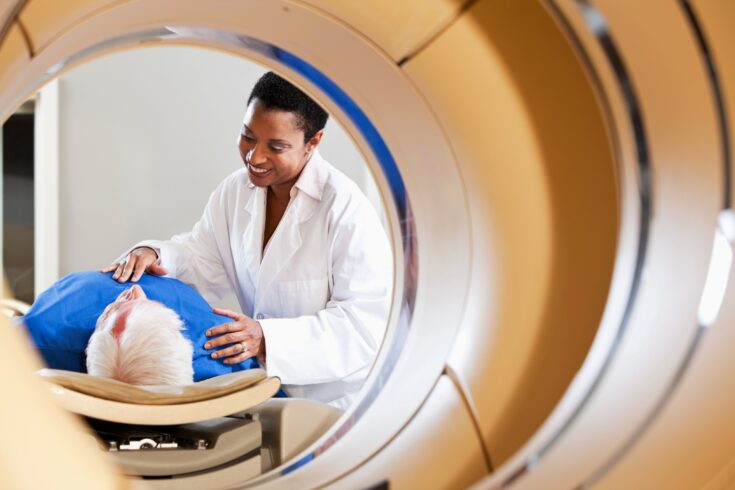Science and Technology Facilities Council
|
|
Quantum research unlocks PET scan potential in disease detection
New research in quantum entanglement could vastly improve disease detection, such as for cancer and Alzheimer’s disease.

Credit: kali9, E+ via Getty Images
Groundbreaking research by scientists at the University of York could lead to significant improvements in position emission tomography (PET) scans, widely used in diagnosing cancer and Alzheimer’s disease.
Funded by the Science and Technology Facilities Council (STFC), this research, published in Physical Review Letters explores the potential of ‘quantum entanglement’ to vastly improve disease detection.
Quantum entanglement is a phenomenon where particles become interconnected in a way that the state of one particle can instantly influence the state of another, no matter how far apart they are.
From cancer to Alzheimer’s
PET scans are one of the most effective techniques in diagnosing cancer and are a valuable method of diagnosing Alzheimer’s disease.
They reveal how organs and tissues are functioning by tracking a radioactive substance that has been injected into the body.
Some cells, such as cancer cells, absorb more glucose and appear brighter on the scan.
This is because radioactive material emits particles called positrons, which interact with electrons in the body to produce energy rays (known as gamma photons).
These gamma photons are detected by the PET scanner to locate areas of high activity, such as with tumours.
Quantum physics
However, detecting gamma photons can be challenging as some can scatter before they can be measured, known as ‘junk’ scatter events.
New research by the University of York aims to use these scattered signals by applying quantum physics to improve the accuracy of PET scans.
New possibilities
The research suggests that that by combining PET scan technology with advancements in quantum particle theory, the typically discarded ‘junk’ events could provide valuable information.
This is because PET photons are created in a quantum entangled state, meaning the behaviour of one photon affects the other, even when they are far apart.
This study shows that quantum entanglement mostly survives the scattering process that creates ‘junk’ events.
Improving disease detection
These findings open exciting new possibilities for using artificial intelligence and machine learning to analyse the data created through these junk events.
In turn, this could lead to more sensitive diagnostic tools and potentially reduce the radiation dose required for patients.
Professor Daniel Watts, Chair of Hadron and Nuclear physics at the University of York, who led the project, said:
The robustness of the quantum entanglement between the PET photons came as a real surprise.
Now we understand this quantum entanglement on a more fundamental basis, the exploitation of quantum information in PET is finally within reach.
Transforming healthcare
Professor Mark Thomson, Executive Chair at STFC, said:
This groundbreaking research by the University of York uses photon quantum entanglement to develop cutting edge technologies that could vastly improve disease detection, bringing benefit to society.
By harnessing quantum entanglement, we are advancing towards more precise and sensitive diagnostic methods that improve patient outcomes whilst minimising radiation exposure.
The research highlights STFC’s commitment to supporting pioneering research with the potential to transform healthcare.
Quantum technologies funding
This STFC-funded research work was supported through the quantum technologies for fundamental physics (QTFP) funding.
This funding aims to demonstrate how the latest advances in quantum science and technology can be used to investigate key fundamental questions in physics.
Find out more about the QTFP funding.
Read the full University of York press release.
Original article link: https://www.ukri.org/news/quantum-research-unlocks-pet-scan-potential-in-disease-detection/


